Salemtown, an evolving enclave within Nashville, seamlessly merges historical roots with contemporary progress. Amidst its revitalized streets and tight-knit community, PNC Law Criminal Defense Attorney stands as a stalwart of legal assurance. For the dynamic residents of Salemtown, we’re not just lawyers; we’re dedicated allies in every legal journey.
About Salemtown
Salemtown is a vibrant and evolving neighborhood located just north of downtown Nashville, Tennessee. It is historically significant and has seen a surge in growth and development over recent years.
Originally, Salemtown was predominantly a working-class neighborhood with a rich tapestry of history interwoven with the broader story of Nashville. As the years have progressed, there has been a notable transition in the neighborhood’s character, with an influx of new residents and businesses that have been drawn by its charm and potential.
The architecture of this neighborhood is particularly appealing. A walk through its streets reveals a mix of historic homes, many of which have been beautifully restored, alongside more modern constructions that have been designed with an eye to fit seamlessly into the existing landscape. This juxtaposition of old and new gives the area a unique aesthetic that is both nostalgic and forward-looking.
One of the standout features of Salemtown is its sense of community. Residents take pride in their neighborhood, and this is evident in the well-maintained homes, community events, and local businesses that dot the area. There’s a strong push towards supporting local entrepreneurs, and as a result, you’ll find a number of boutique shops, cafes, and restaurants that offer unique products and experiences.
However, with its growth and popularity, there have also been concerns about gentrification. As property values rise and the area becomes more desirable, there’s an ongoing conversation about preserving the original character and ensuring that long-term residents aren’t priced out.
Neighborhood History
The area that is now known as Salemtown was originally settled in the early 19th century. As Nashville began to expand, so too did the demand for residential spaces. The neighborhood was predominantly populated by working-class families, many of whom were employed in the industries and businesses that were booming in Nashville at the time.
Over the years, the area witnessed several significant events that shaped its evolution. The Civil War, for instance, had a profound impact on Nashville and, by extension, on Salemtown. The neighborhood saw its share of struggles during this tumultuous period, but like the rest of the city, it managed to rebuild and move forward.
The early 20th century saw a shift in the demographics of the neighborhood. With the Great Migration, many African Americans moved to northern cities in search of better opportunities, and Salemtown became home to a significant number of these new residents. This period enriched the cultural and social fabric of the area, introducing a blend of traditions and influences.
However, the latter half of the 20th century brought challenges. Urban decay, economic downturns, and shifts in industrial focus led to a decline in the neighborhood’s fortunes. Many historic homes fell into disrepair, and the community faced numerous socioeconomic challenges.
It wasn’t until the turn of the 21st century that the neighborhood began to witness a resurgence. With Nashville’s increasing popularity and growth, there was a renewed interest in the city’s historic neighborhoods. Efforts were made to restore and preserve the architectural gems of the neighborhood, and as a result, the area started attracting new residents, businesses, and investments.
Today, while the neighborhood has seen significant changes and development, its history remains palpable. The streets, homes, and stories of the community serve as a testament to its resilience, adaptability, and enduring spirit.
Public Transportation
One of the main avenues for public transportation serving the area is the Metropolitan Transit Authority (MTA), now known as WeGo Public Transit. This system offers a range of bus routes that pass through or near the neighborhood, connecting residents to key destinations in and around Nashville. The frequency and reliability of these services make it feasible for many residents to rely on buses for their daily commutes and other transportation needs.
In addition to the standard bus routes, WeGo Public Transit has also introduced several Rapid Bus services designed to provide faster and more direct connections between key areas of the city. While these routes might not pass directly through Salemtown, their proximity offers residents additional options for speedy travel.
Salemtown’s location also means that it’s within a comfortable walking or biking distance to some of Nashville’s central transit hubs. This is beneficial for those who might need to transfer between different modes of transportation or access services that aren’t directly available in the neighborhood.
Another significant advantage for residents is the city’s push toward improving pedestrian and bicycle infrastructure. There have been efforts to establish more bike lanes and pedestrian-friendly zones in and around the neighborhood, making it safer and more convenient for non-motorized modes of transportation.
However, it’s worth noting that while public transportation in the area is relatively robust, Nashville, like many American cities, still has room for improvement when it comes to offering comprehensive transit solutions. Residents often express the desire for more frequent services, expanded routes, and additional transit options like light rail or trolleys.
PNC Law: Salemtown’s Reliable Legal Beacon
Facing legal intricacies in Salemtown? Look no further than PNC Law Criminal Defense Attorney for steadfast counsel and representation.
